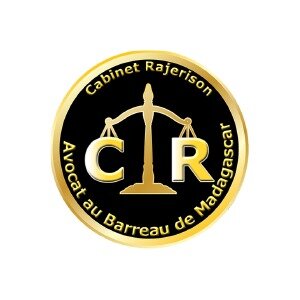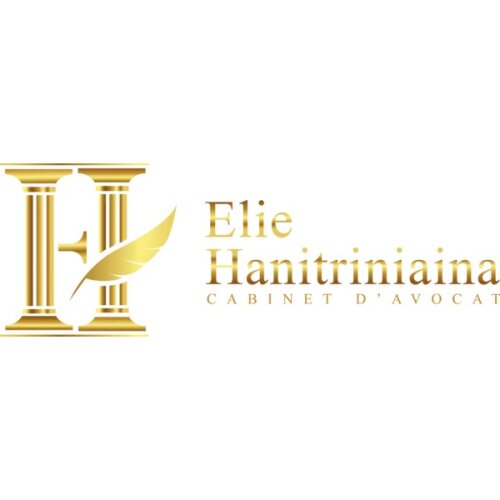Best Juvenile Law Lawyers in Antananarivo
Share your needs with us, get contacted by law firms.
Free. Takes 2 min.
List of the best lawyers in Antananarivo, Madagascar
About Juvenile Law in Antananarivo, Madagascar
Juvenile Law in Antananarivo, the capital city of Madagascar, deals with legal matters involving minors, typically individuals under the age of 18. The legal framework aims to ensure the welfare, protection, and rehabilitation of young individuals involved in legal processes. Madagascar, in line with international standards and conventions, focuses on safeguarding the rights of minors and providing them with opportunities for reintegration into society. Juvenile Law addresses issues ranging from juvenile delinquency to child custody, adoption, and abuse cases.
Why You May Need a Lawyer
There are various situations in which individuals or families may require legal assistance in juvenile law:
- Juvenile Delinquency: When a minor is accused of committing a crime, legal representation is essential to ensure their rights are protected throughout the judicial process.
- Child Custody Disputes: Legal guidance can help navigate disputes over custodial rights in cases of divorce or separation.
- Adoption Procedures: The adoption process can be complex, and a lawyer can provide the necessary assistance to comply with legal requirements.
- Child Protection and Abuse Cases: Legal intervention is crucial for ensuring the safety and welfare of minors in abuse or neglect situations.
- Education and Welfare Rights: Legal advice may be necessary if a child's right to education or welfare services is being challenged or violated.
Local Laws Overview
Madagascar's juvenile justice system is primarily governed by the principles established in its national legislation and is influenced by international conventions like the United Nations Convention on the Rights of the Child (CRC). Key aspects include:
- Ages of Criminal Responsibility: Madagascar has established a minimum age for criminal responsibility to ensure younger children are protected under the law.
- Special Juvenile Courts: The justice system provides for special courts and procedures designed for handling juvenile cases, focusing on rehabilitation and reintegration.
- Detention Practices: The law prefers non-custodial measures over detention, encouraging alternative avenues like probation or community service programs.
- Rights of the Child: Every child is entitled to protection from exploitation and abuse, access to education, and the right to participate in legal proceedings concerning them.
Frequently Asked Questions
What is the age of criminal responsibility in Madagascar?
The age of criminal responsibility in Madagascar is set to ensure protection for children; typically, the age is around 14 but may vary based on specific circumstances and recent legislative changes.
How does the juvenile court system work in Madagascar?
Special juvenile courts handle cases involving minors. These courts focus on protecting the best interests of the child, promoting rehabilitation, and ensuring adherence to rights guaranteed under national and international law.
Can juveniles be sentenced to imprisonment?
While imprisonment is possible, the law favors non-custodial measures. The objective is to find rehabilitative alternatives that foster positive societal reintegration.
What types of issues do juvenile lawyers handle?
Juvenile lawyers assist with cases of juvenile delinquency, child custody, adoption, child abuse and neglect, and education and welfare rights disputes.
What rights do children have during legal proceedings?
Children have the right to legal representation, the right to be heard, and the right to have their privacy protected during legal proceedings. Also, proceedings are typically confidential to protect the child's identity.
How does adoption work in Madagascar?
Adoption in Madagascar involves a legal process requiring compliance with both national laws and international adoption standards. It usually includes assessments and approval by local authorities to ensure the child's welfare.
Are there any programs for the rehabilitation of juvenile offenders?
Yes, Madagascar offers various programs aimed at the rehabilitation of juvenile offenders, focusing on education, skills development, and therapy to facilitate reintegration into society.
What steps should be taken in cases of child abuse?
In cases of child abuse, it is crucial to contact local authorities and seek legal advice immediately. Protection services and appropriate legal measures will be prioritized to ensure the child's safety.
Can minors directly access legal representation?
Yes, minors have the right to legal representation, and special attention is given to ensure they are supported and adequately represented during legal proceedings.
What is the role of international conventions in Malagasy Juvenile Law?
International conventions, such as the CRC, play a vital role in shaping national juvenile law frameworks, ensuring that children's rights are protected and promoted in accordance with global standards.
Additional Resources
For those seeking further information or assistance, the following resources can be helpful:
- Ministry of Justice: Offers guidance and resources on legal processes and rights.
- UNICEF Madagascar: Provides advocacy and resources for children's rights and welfare.
- Local Legal Aid Clinics: These clinics offer pro bono or low-cost legal services for those in need.
- NGOs specialized in children's rights: These organizations provide support, advocacy, and resources for minors and their families.
Next Steps
If you need legal assistance in Juvenile Law, consider the following steps:
- Contact a qualified juvenile law attorney with experience in the local jurisdiction. They can provide guidance specific to your situation.
- Gather all relevant documents and information related to the case.
- Explore options for legal aid through local governmental or non-governmental organizations if affordability is a concern.
- Prepare to engage actively with the legal process, ensuring that the child's welfare and rights remain the focal point of the proceedings.
Lawzana helps you find the best lawyers and law firms in Antananarivo through a curated and pre-screened list of qualified legal professionals. Our platform offers rankings and detailed profiles of attorneys and law firms, allowing you to compare based on practice areas, including Juvenile Law, experience, and client feedback.
Each profile includes a description of the firm's areas of practice, client reviews, team members and partners, year of establishment, spoken languages, office locations, contact information, social media presence, and any published articles or resources. Most firms on our platform speak English and are experienced in both local and international legal matters.
Get a quote from top-rated law firms in Antananarivo, Madagascar — quickly, securely, and without unnecessary hassle.
Disclaimer:
The information provided on this page is for general informational purposes only and does not constitute legal advice. While we strive to ensure the accuracy and relevance of the content, legal information may change over time, and interpretations of the law can vary. You should always consult with a qualified legal professional for advice specific to your situation.
We disclaim all liability for actions taken or not taken based on the content of this page. If you believe any information is incorrect or outdated, please contact us, and we will review and update it where appropriate.











